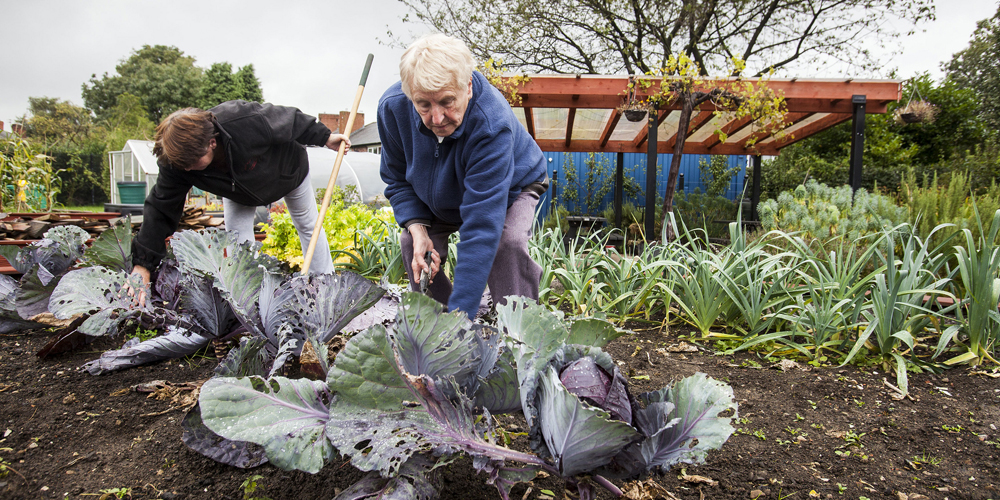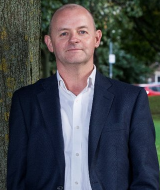More sustainable neighbourhoods
I recently volunteered to serve on the governing body of the infant school that is now firing the imagination of our third child as she embarks on her educational journey. My motivation – other than wanting to pay back the...
I recently volunteered to serve on the governing body of the infant school that is now firing the imagination of our third child as she embarks on her educational journey. My motivation – other than wanting to pay back the effort and imagination that has gone into coping with our ‘spirited’ offspring over the years – was to lend whatever time and energy I could to help a good school maintain its standards in a climate where it is struggling to afford the essentials.
What struck me on joining my fellow governors was the support available to help me do a good job. I can log into an online portal full of resources and guidance, benefit from a programme of training and development and access professional expertise. The same would be true if I volunteered in the health sector, trained to become a scout leader or even offered myself up as a coach of a junior football club. By contrast if – as a public spirited citizen – someone wants to give their time to help make their neighbourhood better – staging cultural events, running youth activities or improving the local park – they have to work harder to find out how to offer their services, and they’re guaranteed to get less support when they do.
One of the reasons this is so is that the range of facilities and provision that the Association of Public Service Excellence (APSE) recently rebranded ‘neighbourhood services’ – culture, community, environment, transport, planning – have only recently come to rely on volunteers for their sustainability. As open access, universal services – often focused on the maintenance of infrastructure such as streets, parks and civic amenities – they have been delivered, and expected to be delivered, by local authorities. But austerity has changed all that. The APSE report – Redefining Neighbourhoods – highlighted that this group of services has felt the brunt of cuts (disproportionately over housing, health, education and social care), with the impact even worse in the most disadvantaged areas. For example, in the most deprived 20 per cent of local authority areas spending on ‘environmental initiatives’ has been cut by 40 per cent and ‘community development’ by a whopping 60 per cent.
So, we have a situation where services that we all see as important to our quality of life are being dismantled – particularly in areas with higher average deprivation – without a support infrastructure being put in place to help communities pick them up or cope without them – something that is particularly needed in areas with high volumes of vulnerable people and more transient communities.
At the same time we have a growing evidence base that there is untapped appetite within communities to get more involved in improving the social and environmental fabric of their local areas. The Fabian Society’s research – Powerful People, Powerful Places – suggests that 30 per cent of people could be mobilised to take part in local environmental initiatives if they knew where to get support, could see the difference their participation made and could access modes of volunteering that accommodated their busy working and home lives.
These research findings chime with the learning generated from Communities Living Sustainably, a five year lottery-funded programme which followed 12 community partnerships as they tested a variety of approaches to involving people in local environmental action – improving green spaces, setting up local energy schemes, tackling fuel and food poverty and preparing communities for the impacts of climate change.
Evaluation and learning from the programme demonstrated that community-led environmental initiatives were delivering transformative benefits for individuals involved – particularly those facing significant challenges in terms of health, employment or poverty – while creating stronger community networks offering greater resilience to economic or environmental shocks. The message from those involved in local projects was clear and unambiguous: community organisations can and want to deliver more on this agenda but need the support of professional agencies and the backing of local authorities.
Some of this is about leadership. When it comes to the environment central government appears to be hostile on the big, global issues – climate change and renewable energy – and at best indifferent to local issues such as the quality of parks and green spaces. At the same time capacity reductions in local government mean that councils are finding it increasingly difficult to provide strategic coordination or to think creatively about how to commission in a way that will build capacity within local communities.
Some if it is about support. Communities learn best from each – but this needs to be organised – and can deliver more when they have access to a network of trusted professionals to guide, signpost and represent their views.
Programmes like Communities Living Sustainably offer inspiration. The successes (and less successful elements) of these 12 projects have led to the creation of good practice reports and ‘how to’ guides aimed at encouraging more groups to mobilise and get active – taking practical, manageable steps to growing a local food economy, generating local energy, transforming open space or building a culture of re-use. What we need to replicate and sustain this success is an accompanying programme of community capacity building so that, once mobilised, people can extend the scope and scale of their voluntary activity and embed it in the way our neighbourhoods are managed in future.

